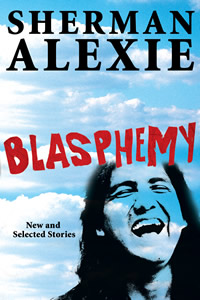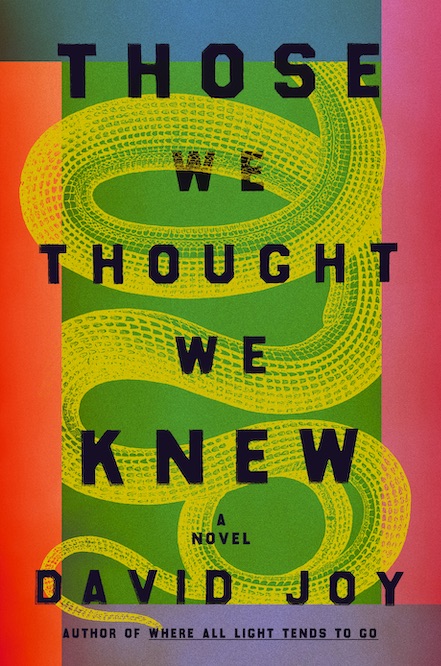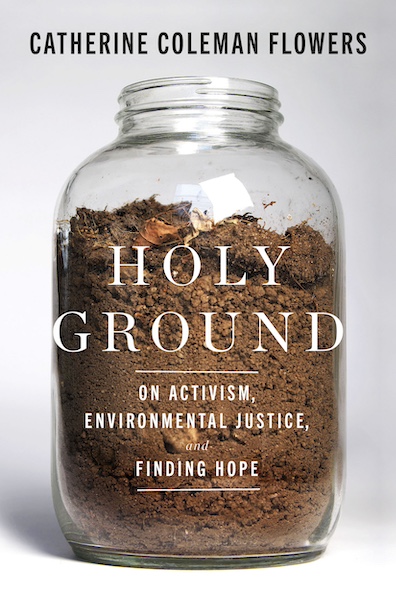Very Brave
Sherman Alexie’s new collection, Blasphemy, combines material from across his award-winning career as a masterful chronicler of contemporary Native American life
“Powwow is like high school,” writes Sherman Alexie, “except with more feathers and beads.” This dryly mordant observation exemplifies the signature fusion of wit and pathos that has made Sherman Alexie one of the leading voices of Native American culture and a figure of American letters whose significance defies ethnic or regional categorization. Since his emergence in 1994 with the acclaimed collection The Lone Ranger and Tonto Fistfight in Heaven, Alexie has displayed an effortlessly authoritative insight into both the universal and distinct aspects of contemporary reservation life. He has been both prolific and virtuosic, penning dozens of stories, novels, poems, and screenplays. His work has been recognized with countless awards and honors, including the PEN/Faulkner, PEN/Malamud, and PEN/Hemingway Awards and the National Book Award for Young People’s Literature. He is a gifted speaker, and his dynamic, candid, and irreverent performances draw unusually large crowds for literary readings. With Blasphemy, Alexie reasserts his command of the short story by combining a collection of highlights from his award-winning catalogue with fifteen new stories, each of which exhibits his trademark blend of humor, violence, and tragedy.
The previously published work in Blasphemy spans the breadth of Alexie’s varied career, from his first collection to his most recent, the PEN/Faulkner Award-winning War Dances. But, in typical Alexie fashion, the stories are not categorized neatly according to genre or date of publication; instead, they’re presented in mix-tape style. The opening story, “Cry, Cry, Cry,” devastatingly establishes Alexie’s most pressing themes—the viciousness, despair, and essential hopelessness of reservation life—through the self-destruction of Junior, a mixed-blood Spokane whose penchant for drugs, sex, and violence lands him a ten-year prison term followed by a life outside that seems somehow more harrowing than prison. The narrator—Junior’s cousin—succinctly expresses Alexie’s grimly comic view of Junior’s delusions. “I’m traditional,” Junior says. “Whenever an Indian says he’s traditional,” his cousin remarks, “you know that Indian is full of shit.” But Junior’s aimless spiral into violence and debasement isn’t really the point of the story. The heart of “Cry, Cry, Cry”—like that of most of Alexie’s work—comes from the heartbreak that comes of watching someone you love destroy himself, as well as the guilt of somehow surviving and even thriving where others have so utterly surrendered. “Yeah, we Indians are addicting,” Alexie writes. “You have to be careful around us because we’ll teach you how to cry epic tears and you’ll never want to stop.”
 Much of the pleasure in Blasphemy derives from seeing the finest of Alexie’s early work alongside the latest. From the outset, Sherman Alexie has been persistently lauded for his seemingly effortless ability to simultaneously embrace and explode American Indian stereotypes, from the “noble savage” myth to the image of the modern Indian as a hopeless, homeless alcoholic. In Blasphemy, we are reminded of the precocious gifts of the young Alexie—only twenty-eight when his first collection was published—in mapping the troubled consciousness of Native Americans in the vaunted and frequently anthologized stories “Because My Father Always Said He Was the Only Indian Who Saw Jimi Hendrix Play ‘The Star-Spangled Banner’ at Woodstock” and “This Is What It Means to Say Phoenix, Arizona.”
Much of the pleasure in Blasphemy derives from seeing the finest of Alexie’s early work alongside the latest. From the outset, Sherman Alexie has been persistently lauded for his seemingly effortless ability to simultaneously embrace and explode American Indian stereotypes, from the “noble savage” myth to the image of the modern Indian as a hopeless, homeless alcoholic. In Blasphemy, we are reminded of the precocious gifts of the young Alexie—only twenty-eight when his first collection was published—in mapping the troubled consciousness of Native Americans in the vaunted and frequently anthologized stories “Because My Father Always Said He Was the Only Indian Who Saw Jimi Hendrix Play ‘The Star-Spangled Banner’ at Woodstock” and “This Is What It Means to Say Phoenix, Arizona.”
In these stories, Alexie honed the characters and themes that populate his screenplay for Smoke Signals, the acclaimed 1998 independent film that dramatically widened the audience for Alexie’s fiction. In “Because My Father Said,” young Victor struggles to resolve his mixed feelings toward his charismatic but violent and perennially troubled father. “Some nights I lay awake and listened to my parents’ lovemaking,” Victor says. “I know exactly what it sounds like when my parents are touching each other. It makes up for knowing exactly what they sound like when they’re fighting. Plus and minus. Add and subtract. It comes out just about even.” In “This Is What It Means,” Victor journeys to Arizona to collect his father’s ashes, accompanied by his cousin Thomas Builds-the-Fire, an oddball and compulsive storyteller. “There were these two Indian boys who wanted to be warriors,” Thomas says. “But it was too late to be warriors in the old way. All the horses were gone. So the two Indian boys stole a car and drove it to the city. They parked the stolen car in front of the police station and then hitchhiked back home to the reservation. When they got back, all their friends cheered and their parents’ eyes shone with pride. You were very brave, everybody said to the two Indian boys. Very brave.”
 Perhaps most moving is the collection’s final story, the revered “What You Pawn I Will Redeem” (first published in The New Yorker and later in the 2004 collection Ten Little Indians), in which a homeless Spokane Indian drinking himself to death on the streets of Seattle embarks upon a quest to reclaim his late grandmother’s long-lost powwow regalia, which he and his street family discover in a pawn shop. The narrator, comically named Jackson Jackson, or “Jackson Squared,” lost his grandmother to breast cancer, but, in an alcoholic’s reasoning, suspects another cause of death: “I wondered if my grandmother’s cancer had started when somebody stole her powwow regalia,” Jackson muses. “Maybe the cancer started in her broken heart and then leaked out into her breasts. I know it’s crazy, but I wondered if I could bring my grandmother back to life if I bought back her regalia.” The quixotic nature of this quest (the regalia is valued at over $1,000) and Jackson Squared’s inept efforts to achieve it culminate in one of the more stirring denouements in recent American short fiction.
Perhaps most moving is the collection’s final story, the revered “What You Pawn I Will Redeem” (first published in The New Yorker and later in the 2004 collection Ten Little Indians), in which a homeless Spokane Indian drinking himself to death on the streets of Seattle embarks upon a quest to reclaim his late grandmother’s long-lost powwow regalia, which he and his street family discover in a pawn shop. The narrator, comically named Jackson Jackson, or “Jackson Squared,” lost his grandmother to breast cancer, but, in an alcoholic’s reasoning, suspects another cause of death: “I wondered if my grandmother’s cancer had started when somebody stole her powwow regalia,” Jackson muses. “Maybe the cancer started in her broken heart and then leaked out into her breasts. I know it’s crazy, but I wondered if I could bring my grandmother back to life if I bought back her regalia.” The quixotic nature of this quest (the regalia is valued at over $1,000) and Jackson Squared’s inept efforts to achieve it culminate in one of the more stirring denouements in recent American short fiction.
Not all the new work in Blasphemy stands up to the career-retrospective element (what writer’s would?), but it hardly disappoints. Most of the previously uncollected work, interestingly, deals either with characters of white, mixed, or non-specific ethnicity. This shift in focus may be a natural evolution, but it may also stem from a sense of uneasiness with the burden of carrying the “Native American Literature” label: “As an Indian, you don’t have the luxury of being called an autobiographical writer often,” Alexie has said. “You end up writing for the whole race.”
Though Sherman Alexie is unlikely ever to escape the easy categorization of “Native American Writer,” his stylistic and storytelling gifts have made him among the most envied and admired writers of his generation. Blasphemy provides a single-volume resource demonstrating why Alexie’s voice will continue to surprise, inspire, enrage, and delight for many years to come.
Sherman Alexie will read from and discuss Blasphemy on October 18 at Montgomery Bell Academy in Nashville as part of the Salon@615 series . The event, which is free and open to the public, begins at 6:15 p.m. in the Dead Poets Society Auditorium in Lowry Hall, with a signing to follow. Parnassus Books will be on hand to sell copies.


